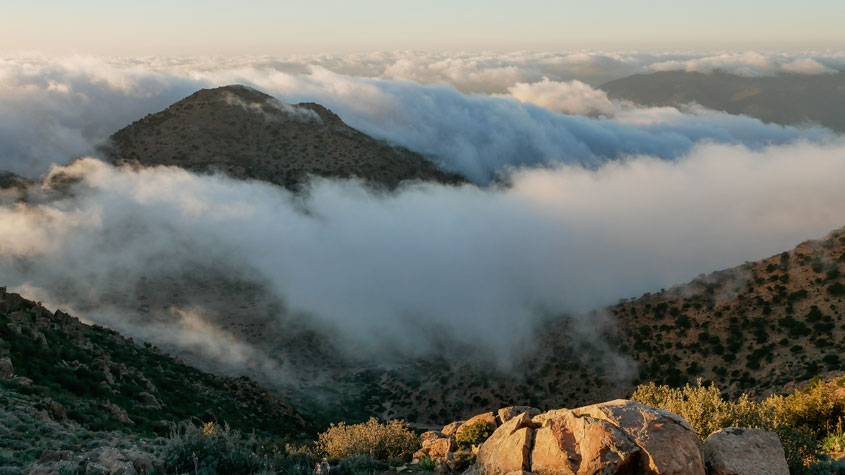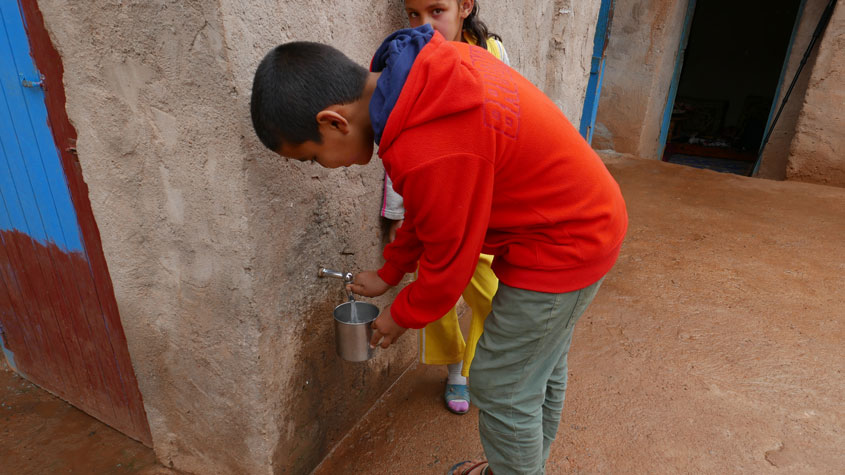Harvesting fog to relieve water shortages in arid regions
Water is the source of all life. It is essential to our existence and our well-being. However, in many areas and regions of the world, water shortages are becoming ever more frequent with major implications for affected communities.

Many arid highland areas face severe water shortages resulting from low rainfall and depleting ground water resources. These regions are prone to multiple challenges ranging from land degradation and rural migration to low levels of nutrition and health and poor literacy.
A technology called CloudFisher® – developed by industrial designer Peter Trautwein, a volunteer at the German Water Foundation (WasserStiftung®) – is making it possible to harvest clean drinking water from fog and to deliver it to communities facing severe water shortages in arid highland coastal areas where fog is common. Aqualonis, a Munich-based for-profit company headed by Mr. Trautwein, is responsible for commercializing and implementing CloudFisher® technology.
Between 2013 and 2016, the German Water Foundation began working with Peter Trautwein on the slopes of Mount Boutmezguida, one of Morocco’s driest areas. It was an ideal location to develop, test and refine this efficient and sustainable fog-harvesting system. CloudFisher® technology can withstand high winds and is simple to maintain. Its pioneering design takes fog harvesting to a new level.

For much of the year, Mount Boutmezguida is shrouded in fog and clouds that roll in from the Atlantic. For many years, villagers living on these mountain slopes have suffered severe water shortages and stress resulting from low annual rainfall and depleting ground water resources.
CloudFisher® now offers these communities an affordable and sustainable source of clean water. Today, villagers on the slopes of the mountain have access to a plentiful supply of water that literally hangs in the fog and clouds that envelope them.
Annually, CloudFisher® nets capture around 22 liters per square meter of water from fog, with up to 60 liters of water per square meter harvested in the months from November to February.
About the technology
The CloudFisher® consists of a fine-mesh net suspended within a steel frame. The net is held in place by a series of rubber expanders that also attach it to the collector at its base. The expanders keep the supporting grid and fabric taut and serve as a buffer against strong gusts of winds.

The nets are placed in a position that is perpendicular to the wind to maximize water collection. Water vapor that is trapped in the fine mesh of the net, condenses and drips down the mesh into a collector at the base.
The technology is quick and easy to set up and easy to maintain making it an ideal solution for resource-poor locations, where funds and spare parts are limited at best.
Intellectual property
CloudFisher® is a registered trademark held by the German Water Foundation, and the technology is protected with both utility models and patents.
“We protected the system to prevent others from copying it and to ensure we have freedom to operate with no fear of infringing anyone else’s rights because the technology can also be used for commercial purposes, for example by breweries.”
Impact
The technology has had a significant impact on the householders. Villagers now have fresh, clean drinking water piped to their homes, which means that women and girls who used to spend hours fetching water, can now devote their time to more productive activities – the girls can devote more time to their education and the women can spend more time cultivating more fruit and vegetables.

Aqualonis is now also installing CloudFisher® fog collectors at Qameyu secondary school in Tanzania’s highland plateau. This will supply the school’s 300 plus pupils and teachers with clean drinking water and will allow them to irrigate the school’s vegetable garden.
More information to CloudFisher in Morocco on Youtube.